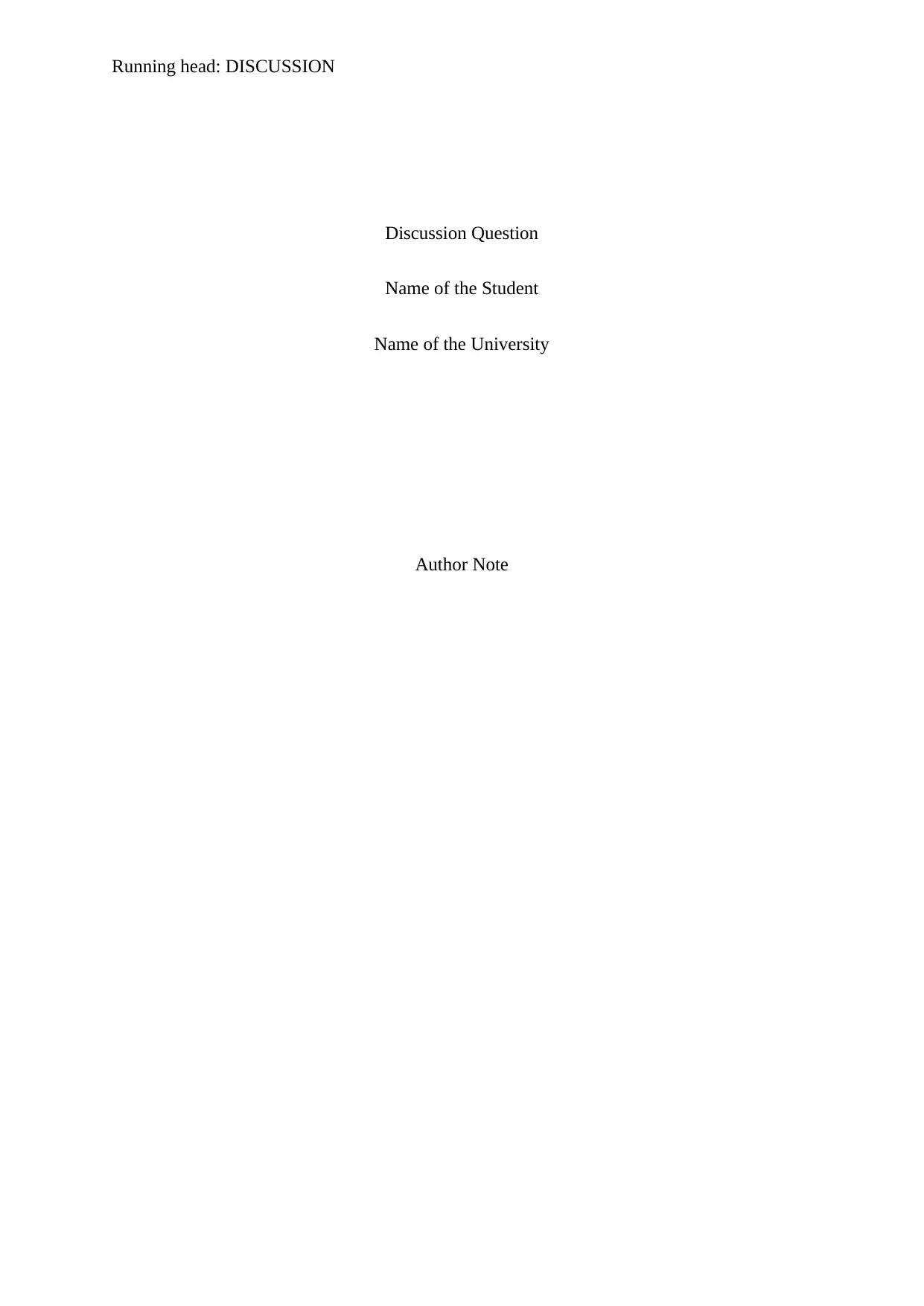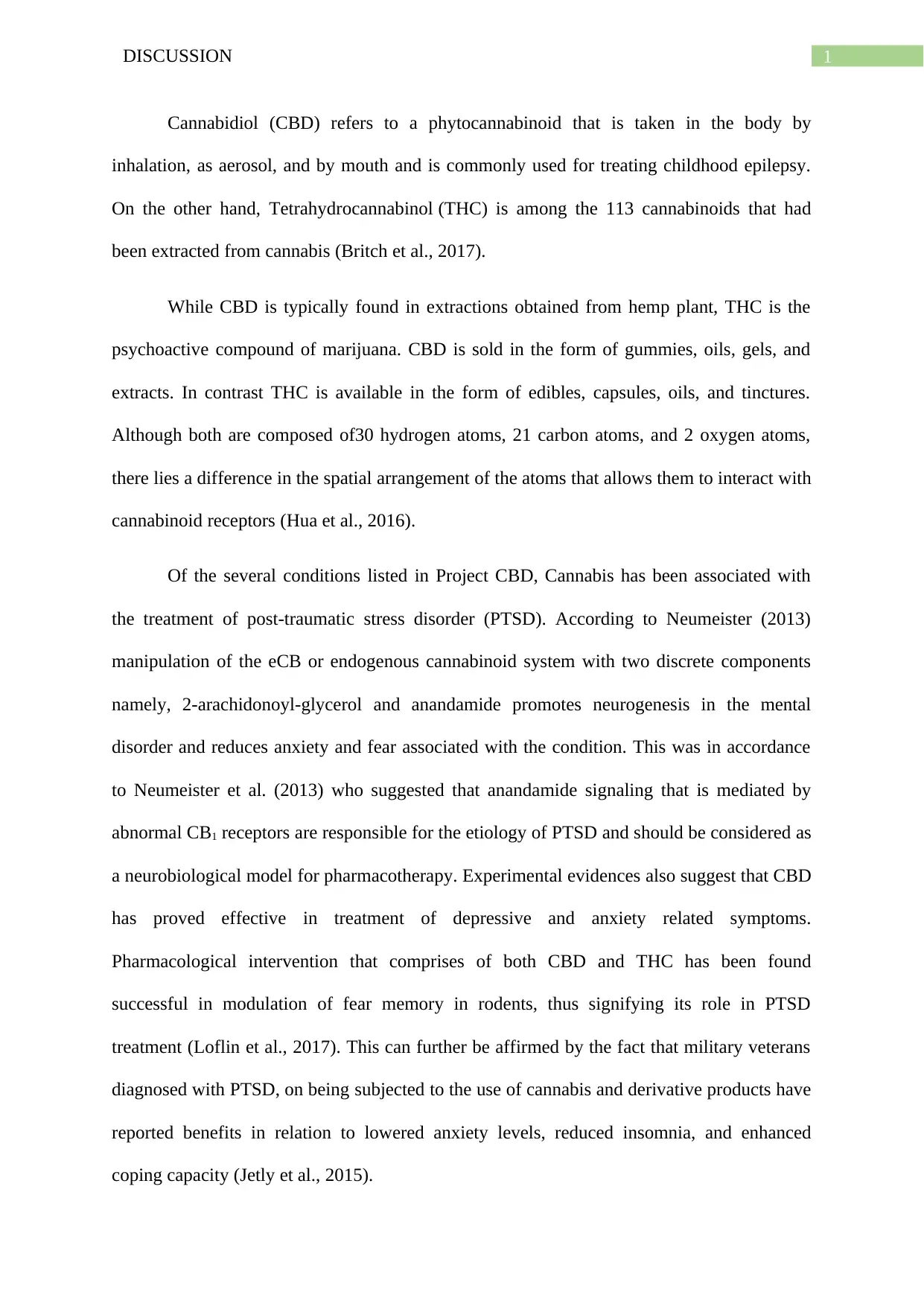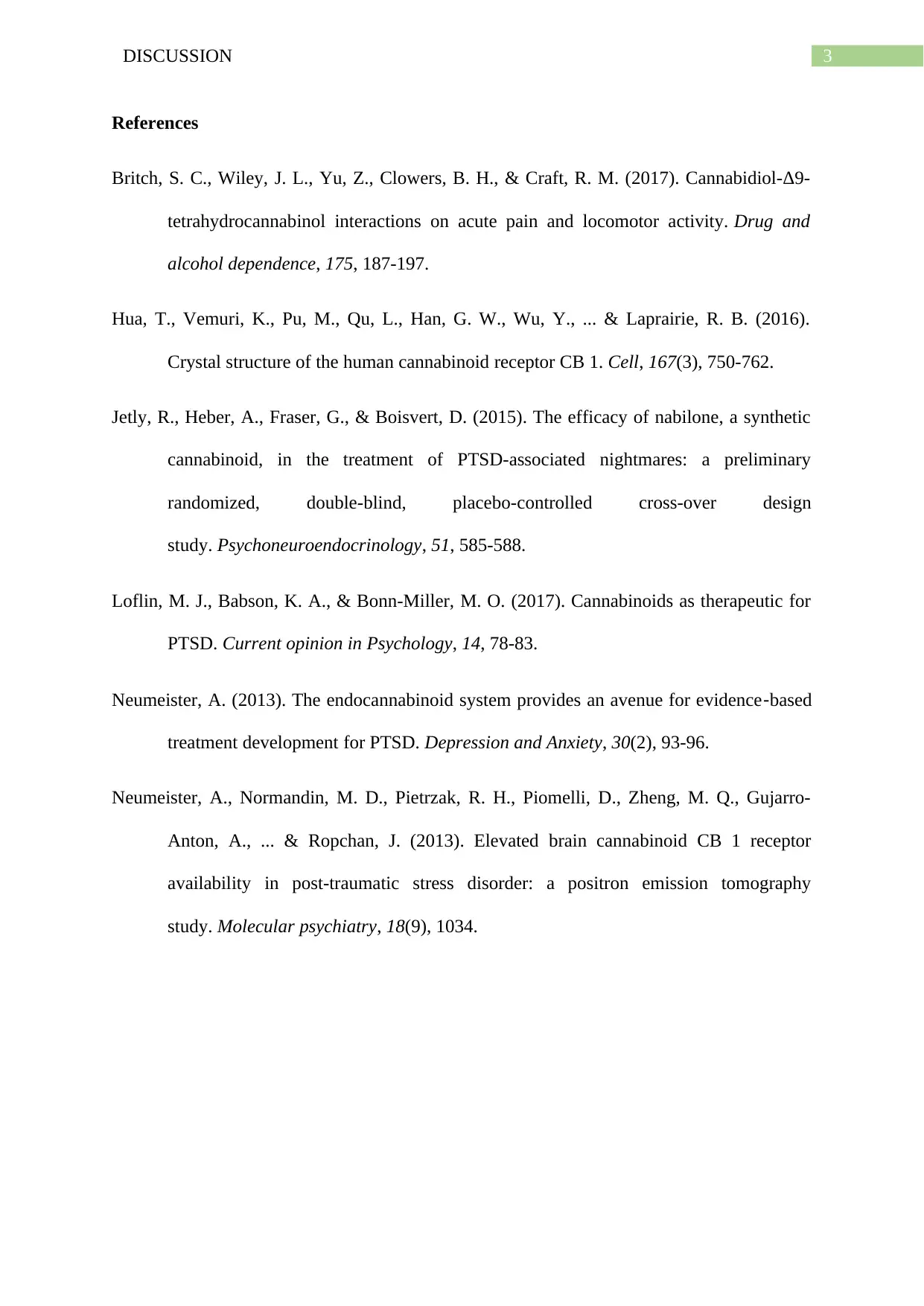Cannabinoids and PTSD: Examining Treatment Options - Discussion
VerifiedAdded on 2023/04/21
|4
|693
|310
Discussion Board Post
AI Summary
This discussion post examines the potential of cannabinoids, specifically cannabidiol (CBD) and tetrahydrocannabinol (THC), in the treatment of post-traumatic stress disorder (PTSD). CBD, derived from hemp, and THC, the psychoactive component of marijuana, interact with the body's cannabinoid receptors, influencing neurogenesis and anxiety levels. The discussion references studies that suggest cannabinoids can modulate fear memory, reduce anxiety and insomnia, and enhance coping capacity in veterans with PTSD. It concludes that cannabinoids may be an effective pharmacotherapy for managing PTSD, citing evidence of their positive impact on anxiety, sleep, and overall well-being.
1 out of 4







![[object Object]](/_next/static/media/star-bottom.7253800d.svg)